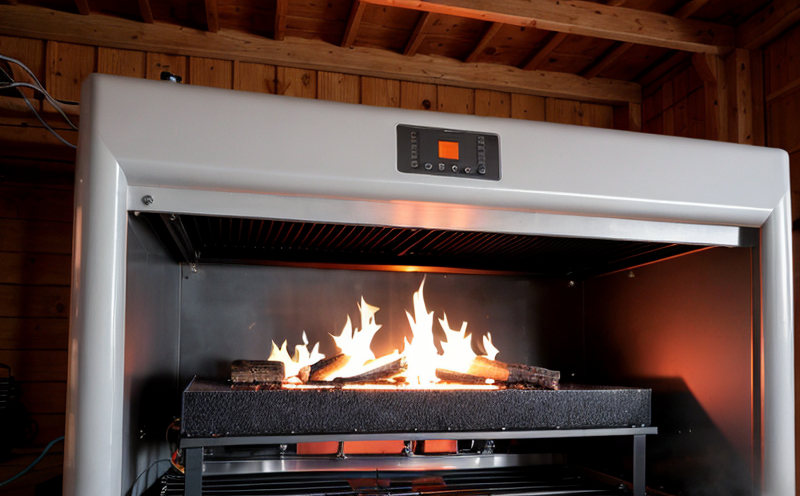Thermal Expansion Testing
The Importance of Thermal Expansion Testing Ensuring Your Materials Can Withstand the Heat
In todays fast-paced industrial world, materials are subjected to a wide range of environmental conditions, including extreme temperatures. When it comes to designing and manufacturing products that can withstand these temperature fluctuations, one critical aspect is often overlooked thermal expansion. Thermal expansion testing is a laboratory service that measures how much a material expands or contracts when exposed to different temperatures. It may seem like a trivial concern, but understanding the thermal properties of your materials is essential for ensuring the safety, performance, and longevity of your products.
At Eurolab, we provide comprehensive thermal expansion testing services to help businesses like yours navigate this critical aspect of product development. In this article, well delve into the world of thermal expansion testing, exploring its importance, benefits, and applications.
What is Thermal Expansion Testing?
Thermal expansion testing measures the change in size or shape of a material when its exposed to varying temperatures. This phenomenon occurs due to the atomic bonds within the material, which expand or contract as they gain or lose energy. The resulting dimensional changes can have significant effects on product performance, durability, and safety.
For instance, imagine a critical component used in an aerospace application that experiences sudden temperature fluctuations during flight. If this component expands excessively, it may compromise the structural integrity of the aircraft, putting lives at risk. In such cases, thermal expansion testing becomes crucial to ensure that materials can withstand extreme temperatures without compromising performance.
Advantages of Using Thermal Expansion Testing
Eurolabs thermal expansion testing services offer numerous benefits for businesses seeking to optimize their product development processes
Predictive Maintenance By understanding how your materials respond to temperature changes, you can anticipate potential issues before they occur. This reduces the risk of equipment failure, downtime, and associated costs.
Improved Product Design Thermal expansion testing enables engineers to design products with optimal dimensions, taking into account the materials thermal properties. This leads to more efficient, cost-effective, and reliable designs.
Compliance with Industry Standards Many industries have strict regulations regarding thermal expansion and contraction. By performing thermal expansion testing, you can ensure compliance with relevant standards, avoiding costly rework or even product recalls.
Enhanced Material Selection Thermal expansion testing helps identify materials best suited for specific applications, reducing the risk of material failure due to inadequate selection.
Increased Safety Understanding how your materials respond to temperature changes ensures that products operate within safe parameters, minimizing the risk of accidents and injuries.
Better Quality Control By identifying potential issues early on, you can implement corrective measures to prevent defects and ensure consistency in product quality.
Thermal Expansion Testing Applications
Eurolabs services cater to a wide range of industries, including
Aerospace Materials used in aircraft components must withstand extreme temperatures, making thermal expansion testing essential for ensuring structural integrity and safety.
Automotive Engine components, such as cylinder head gaskets and valve seat rings, require precise thermal expansion properties to function efficiently.
Energy Generation Nuclear reactors, turbines, and other equipment rely on materials that can withstand high temperatures without compromising performance.
Medical Devices Implantable devices, surgical instruments, and medical equipment must be designed with consideration for temperature fluctuations, ensuring patient safety and device reliability.
Frequently Asked Questions (FAQs)
What are the common types of thermal expansion testing?
Isothermal expansion, non-isothermal expansion, and coefficient of thermal expansion (CTE) measurements.
How long does a typical thermal expansion test take?
Testing times vary depending on the method and equipment used; some tests can be completed in under an hour, while others may require several days or even weeks.
What are the key factors influencing thermal expansion testing results?
Material composition, crystal structure, temperature range, and specimen geometry.
Can Eurolab provide customized thermal expansion testing services for my specific needs?
Yes, our team of experts works closely with clients to develop tailored testing protocols that meet their unique requirements.
How do I ensure that the results from Eurolabs thermal expansion testing are relevant and applicable to my product design?
Our experienced engineers will work collaboratively with your design team to ensure a seamless integration of test data into your product development process.
Conclusion
Thermal expansion testing is a critical aspect of material science, playing a vital role in ensuring the safety, performance, and longevity of products operating under extreme temperature conditions. By partnering with Eurolab for thermal expansion testing services, businesses can mitigate risks associated with material failure, reduce costs, and improve overall product quality.
Dont compromise on your products integrity choose Eurolabs comprehensive thermal expansion testing services to guarantee that your materials can withstand the heat.




